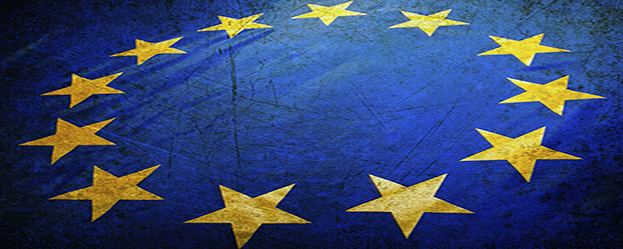This website uses cookies so that we can provide you with the best user experience possible. Cookie information is stored in your browser and performs functions such as recognising you when you return to our website and helping our team to understand which sections of the website you find most interesting and useful.
Business News Digital Labels & Publishers Legal Top Stories
EU Council overcomes deadlock on European Copyright Directive, as IMPALA clarifies its position on the copyright reforms
By Chris Cooke | Published on Monday 11 February 2019

Negotiations between the European Commission, European Parliament and EU Council over a final, final draft of the European Copyright Directive are due to resume this week after a deadlock within the latter grouping was formally overcome on Friday. Meanwhile indie-label-repping IMPALA has clarified its position after trade bodies for record companies and music publishers last week called for the whole directive to now be abandoned.
There are currently three versions of the directive: the original drafted by the Commission in 2016, the heavily amended version passed by the Parliament last year and the Council’s preferred edit. They now need to agree a final single version during a process that is known in EU circles as trilogue. Trilogue negotiations should have continued last month but stalled because the Council could not agree on its preferred edit.
The directive, of course, includes the super-controversial safe-harbour-reforming article thirteen that the music industry has spent years lobbying for. It would increase the liabilities of user-upload platforms like YouTube. Within the Council, which includes representatives of each government of the 28 EU members states, there was disagreement over whether smaller and newer user-upload platforms should be exempt from those new liabilities. But on Friday a compromise was reached.
That should be good news for the music industry, given it means talks around a final directive – including that all important safe harbour reform – can continue. But then on Thursday, as it became clear deadlock was likely to be overcome in Council, music industry trade bodies IFPI, ICMP and IMPALA suddenly declared that they no longer supported the copyright reforms. Expressing concerns about edits made in Council, they said “we would rather have no directive at all than a bad directive”.
For the last few years while the copyright directive has been going through the motions the music industry has pretty much spoken as one, especially in supporting a strong unambiguous article thirteen while YouTube lobbied hard to have safe harbour reform watered down so to be useless. But as IFPI, ICMP and IMPALA bailed on the directive on Thursday, that consensus broke down. Groups representing artists, songwriters, artist managers and song right collecting societies immediately called for directive negotiations to continue.
The UK’s Council Of Music Makers – that brings together BASCA, FAC, MMF, MPG and the MU – suggested that the sudden change of heart on the corporate side of the music industry was at least in part because other articles in the directive, that will provide new rights for artists and songwriters, were being expanded in the final stage. The CMM stated: “They are trying to halt the directive not only because of the latest wording of article thirteen but because they want to avoid the improvements to transparency and fairness that articles fourteen to sixteen bring”.
Responding to that, IMPALA put out its own statement on Friday – having signed the joint statement with IFPI and ICMP the previous day – insisting that it supported articles fourteen to sixteen, and of course thirteen, subject to some “fixes” that are still required.
Although not going into specifics, IMPALA boss Helen Smith said: “We are raising the alarm about the text on the member states’ table, which has fundamental problems. Urgent action is needed to move forward with a text that achieves its original purpose. The recipe still has some holes in it and they need to be fixed before the cake can go in the oven. IMPALA continues to make constructive proposals in this regard”.
The trade group’s statement added that “subject to the fixes that are still needed to the text, IMPALA fully supports the directive including article thirteen and the provisions for performers and authors in articles fourteen to sixteen”. Smith then concluded: “We have backed this proposal from the very beginning, but our support is not at any price”.
It remains to be seen how this week’s directive talks now proceed, and whether the various strands of the music industry are able to come back together to lobby as one in the very final stage. Meanwhile, here in the UK, it will also be interesting to see what UK Music – which brings together trade groups for both music companies and music makers – and PRS For Music – which has both songwriters and music publishers as members – have to say.
Both have been vocal supporters of the directive, and especially article thirteen, to date. But that was when their respective members agreed on a way forward. If artists and songwriters on one side and labels and publishers on the other now have different opinions, that will possibly make participation at this final crucial stage tricky for those two organisations.





